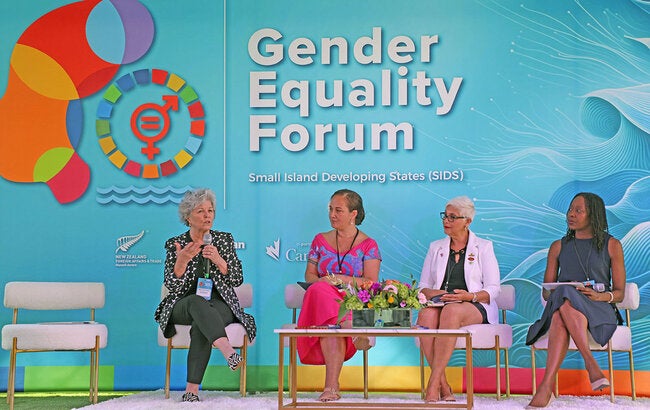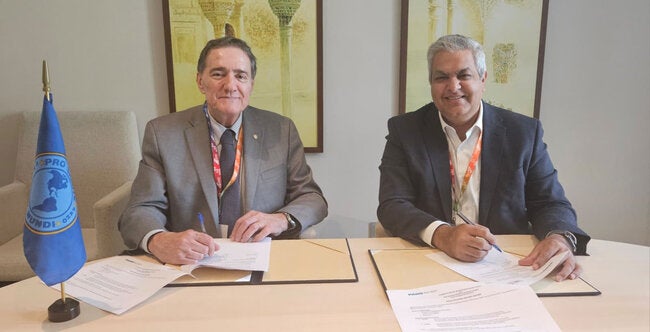
St. John’s, Antigua and Barbuda, May 31, 2024 (PAHO)— Experts from the Pan American Health Organization (PAHO) participated this week in the 4th International Conference of Small Island Developing States (SIDS), to ensure that health remains the center of attention. debates on how to catalyze the sustainable development of small island nations.
Underscoring the importance of inclusive health services, “each of us deserves access to timely, quality health services and care, regardless of race or ethnicity, language, birth, economic status, social origin, age, disability, orientation sexual and/or gender. identity,” PAHO Deputy Director Mary Lou Valdez said in her remarks at the conference.
Throughout the week, experts from PAHO and the World Health Organization (WHO) participated in several side events and interactive dialogues that emphasized the critical intersection of health with the other sustainable development goals.
During the dialogue «By SIDS, for SIDS: Next Decade of Action on Non-communicable Diseases (NCDs) and Mental Health», co-organized by PAHO, WHO, the government of Antigua and Barbuda and the Healthy Caribbean Coalition, Sir Molywn Joseph, Minister of Health and Environment of Antigua and Barbuda stated that addressing NCDs and mental health conditions should be a collective task, not a job for one ministry or one actor. «You just can’t do it alone,» he said.
At the side event, “Smart Hospitals Initiative to Address Emergencies and Resilience to Climate Change: A Plan for SIDS,” organized by PAHO, participants discussed the importance of improving the resilience of health centers to emergencies and disaster events. climate change. The Smart Hospitals initiative focuses on strengthening the structural and operational aspects of the region’s hospitals, as well as the implementation of green technologies that allow health care centers to continue functioning during and after emergencies and disasters.
At the conference, Werner Obermeyer, WHO Director at the United Nations Office in New York, outlined several health-related priorities for leaders, partners and donors to support strengthening health systems in SIDS. These include integrating NCD services into primary health care to help reduce the disproportionately high burden of NCDs in SIDS; addressing the health impacts of climate change; and accelerate actions to address challenges related to training, employment and retention of health workers in SIDS.
During the week, countries also agreed on the “Antigua and Barbuda Agenda for SIDS”. This outlines a strategic plan for the region, to be implemented over the next ten years, to ensure the sustainable development of SIDS. The plan focuses on addressing a range of health issues, including maternal health, moving towards universal health coverage, addressing the high burden of NCDs, improving nutrition and food security, and addressing climate-sensitive diseases, among others. issues.
Reiterating the commitment of PAHO and WHO to support health resilience and equitable access to health for SIDS, the PAHO Deputy Director emphasized that for countries to meet the agenda, ensuring sustainable financing will be key. for health, beyond times of crisis.
«To ensure a successful decade of action ‘for SIDS and by SIDS,’ we must all step up and strengthen the region’s health systems to achieve universal health coverage with primary health care at the center,» said Valdez.






